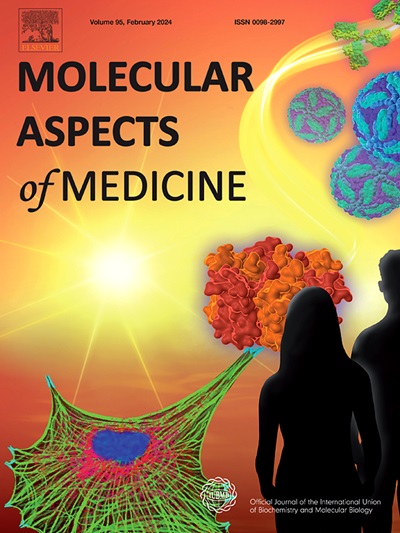遗传性视网膜疾病的反义寡核苷酸研究综述。
IF 10.3
2区 医学
Q1 BIOCHEMISTRY & MOLECULAR BIOLOGY
引用次数: 0
摘要
遗传性视网膜疾病(IRDs)是一种遗传和临床异质性的疾病,可导致进行性视力丧失并经常导致失明。这些疾病的复杂性源于330多种不同基因的致病变异,这使得开发有效的治疗方法极具挑战性。反义寡核苷酸(ASOs)已成为一种有前景的治疗IRDs的方法,可以精确调节转录物的表达和组成。与传统的基因增强疗法不同,ASOs通过调节剪接模式、阻断翻译或促进RNA降解,提供了一种灵活的序列特异性策略。ASO化学的进步,包括骨架和糖修饰,显著提高了它们的吸收、稳定性、特异性和治疗效果,促进了它们在多种疾病中的应用。本文综述了基于aso的ird治疗策略的综合分析,涉及其作用机制、化学修饰、给药策略和当前的临床进展。此外,我们讨论了仍然存在的挑战,如脱靶效应、给药障碍和长期安全性问题,同时强调了未来可能提高aso疗效和安全性并扩大其临床适用性的创新。随着基于aso的疗法通过临床前和临床开发不断取得进展,它们具有重塑ird治疗前景的巨大潜力,为患有这些破坏性疾病的患者提供个性化和靶向治疗。本文章由计算机程序翻译,如有差异,请以英文原文为准。
Antisense oligonucleotides for inherited retinal diseases: a comprehensive review
Inherited retinal diseases (IRDs) are a genetically and clinically heterogeneous group of disorders that cause progressive vision loss and often lead to blindness. The complexity of these conditions arises from pathogenic variants in over 330 different genes, making the development of effective treatments highly challenging. Antisense oligonucleotides (ASOs) have emerged as a promising therapeutic approach for IRDs, offering precise regulation of transcript expression and composition. Unlike traditional gene augmentation therapies, ASOs provide a flexible and sequence-specific strategy by modulating splicing patterns, blocking translation, or promoting RNA degradation. Advancements in ASO chemistry, including backbone and sugar modifications, have significantly improved their uptake, stability, specificity, and therapeutic efficacy, facilitating their application in a variety of diseases. This review provides a comprehensive analysis of ASO-based strategies for IRDs, touching upon their mechanisms of action, chemical modifications, delivery strategies, and current clinical advancements. Additionally, we discuss the challenges that remain, such as off-target effects, delivery barriers, and long-term safety concerns, while highlighting future innovations that may enhance the efficacy and safety of ASOs and broaden their clinical applicability. As ASO-based therapies continue to progress through preclinical and clinical development, they hold significant potential to reshape the therapeutic landscape for IRDs, offering personalized and targeted treatments for patients with these devastating conditions.
求助全文
通过发布文献求助,成功后即可免费获取论文全文。
去求助
来源期刊

Molecular Aspects of Medicine
医学-生化与分子生物学
CiteScore
18.20
自引率
0.00%
发文量
85
审稿时长
55 days
期刊介绍:
Molecular Aspects of Medicine is a review journal that serves as an official publication of the International Union of Biochemistry and Molecular Biology. It caters to physicians and biomedical scientists and aims to bridge the gap between these two fields. The journal encourages practicing clinical scientists to contribute by providing extended reviews on the molecular aspects of a specific medical field. These articles are written in a way that appeals to both doctors who may struggle with basic science and basic scientists who may have limited awareness of clinical practice issues. The journal covers a wide range of medical topics to showcase the molecular insights gained from basic science and highlight the challenging problems that medicine presents to the scientific community.
 求助内容:
求助内容: 应助结果提醒方式:
应助结果提醒方式:


